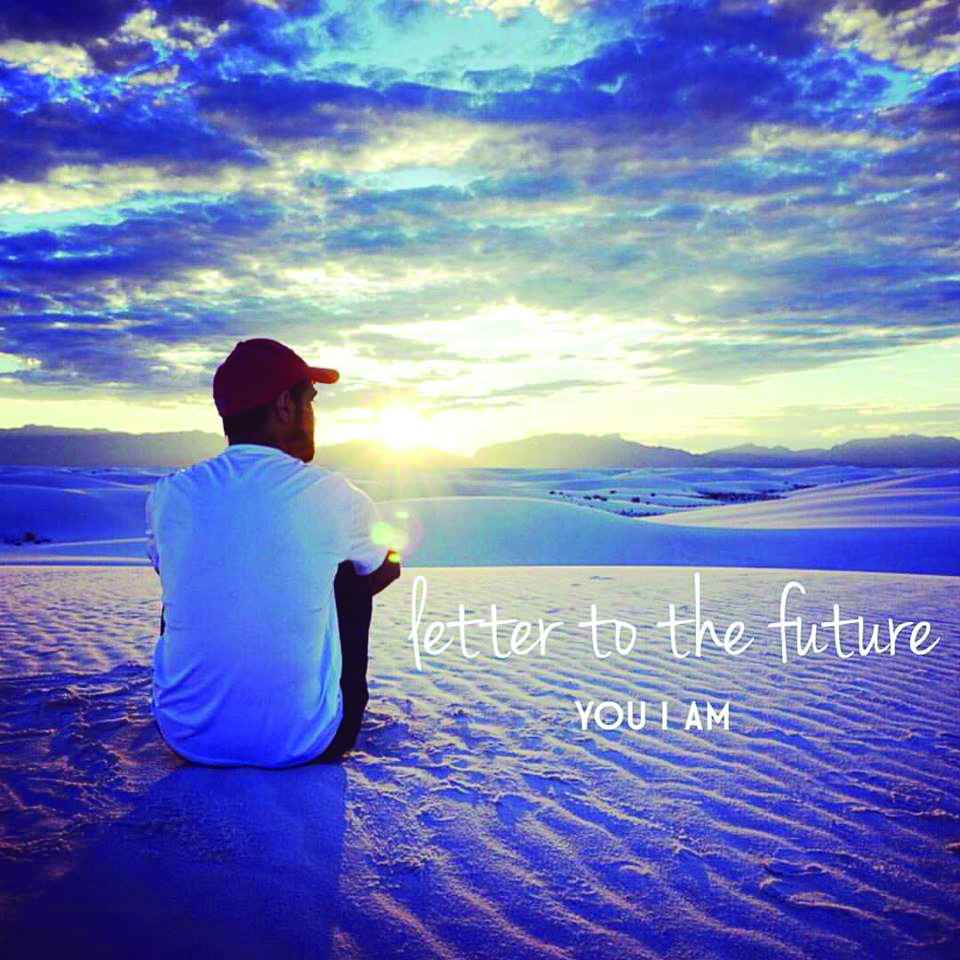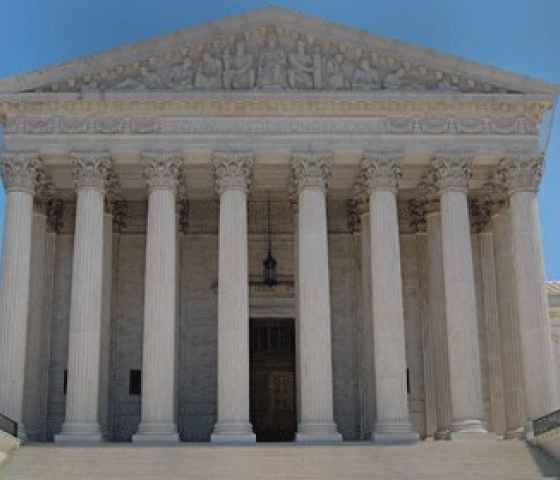What do comedians, cat-cafes, and rapping doctors have in common? If you answered, “Raising funds for the ACLU,” then you win the prize. After the election of Donald Trump to the presidency, people from all walks of life took stock and asked themselves a simple question: what do I have to contribute? So local comedians put on a comedy night as a fundraiser for the ACLU, a cat cafe in Albuquerque hosted a poetry slam benefit, and a medical resident from Albuquerque named Umar Malik, who performs under the moniker “you i am,” wrote and produced a hip-hop music video titled Letter to the Future, which he made available as a “pay what you will” download online benefiting the ACLU. Letter to the Future speaks to the fear that Muslims and other vulnerable communities feel in this environment, and is a powerful call to a more inclusive and secure future for all.
To date, the video has raised more than $800, has been viewed more than 26,000 times on Facebook. Letter to the Future caught the attention of local TV station KOAT, and became national news when CNN featured Malik in an article about his music video.
We recently sat down with Malik to learn more about what inspired Letter to the Future.
How did you get involved in making hip-hop music? It’s not every day you run across a medical doctor who can flow.
Growing up, I was raised on 90’s hip-hop. Anyone from Nas to Tupac, Biggie Smalls, Mob Deep. I listened to those great hip-hop albums over and over. Then one day when I was in college, a couple of friends of mine showed me how to use beat-making software and asked if I could produce some beats for them to rap over. So I learned how to use the program, and made up a beat, and they were like, “This is awesome!” It just became something that I did with my friends in my spare time.
What was it like growing up a Pakistani-American Muslim kid in Albuquerque?
My family is very traditional in terms of culture and religion, so we grew up going to the mosque a lot. Albuquerque only had one mosque at the time, so we had people from all over the world, from the Middle East, Africa, South Asia, American-born Muslims—just so many different kinds of people. That’s one of the blessings of Albuquerque: we have such a diverse Muslim population, and beyond that we just have such a diverse population in general.
"That’s one of the blessings of Albuquerque: we have such a diverse Muslim population, and beyond that we just have such a diverse population in general."
I didn’t really feel any different from anyone else until 9/11 happened when I was in middle school. The mosque I grew up in got a lot of threats and vandalism during that time. It was really hard when I was a kid, seeing a place that you loved and the people you enjoy hanging out with suffer because of something they did not do. Even for me personally, I remember I used to play basketball outside with my neighbor across the street. I went to knock on his door and ask him if he wanted to play a month or two after 9/11, and he told me that he wasn’t allowed to play with me anymore. That really stuck with me. That was the first time, where I was like, “I’m different now.” And that was really hard. From that time, I think a lot of things shifted for Muslim Americans. We felt that as a community we were distanced from the American population.
How did Donald Trump’s campaign and eventual election affect you personally?
I think we’ve come a long way since 9/11, and that people were beginning to see us as more and more normal. Unfortunately, over the past political campaign, and now Donald Trump’s presidency we’ve come to the point that it almost feels like it’s right after 9/11 again. We are being targeted again in that same way. And I think that’s the fear that has spread through Muslim-American community, as well as other populations that are equally marginalized if not more: the African American community, the immigrant community, refugee community, disabled people; so many different groups that are now feeling that fear, now feeling like they don’t belong as well.
That makes me think of one of the things that struck me about Letter to the Future. It wasn’t just about the Muslim experience, it touched on Standing Rock, Black Lives Matter, and the struggles of other communities. What inspired that level of inclusion in your work?
"I think that it falls on everyone to look beyond your own struggle and see that there are other people in this as well."
I think that it falls on everyone to look beyond your own struggle and see that there are other people in this as well. It’s not just you and your own small little world. We choose to write, and feel, and scream about the things that are closest to us, the things that affect us. If I can’t see myself in another person’s shoes, why should I feel bad about it or stand up and say something about it? I think that’s the reason that Letter to the Future is written in that way. Despite my initial inspiration having come from the fear and struggle in my community, it also extends to other communities that are equally fearful. I think that it’s very important to represent that.
What inspired you to write Letter to the Future?
The inspiration definitely came during the campaign season. I think that, along with many Americans, I felt very uncomfortable with a lot of the things being said. And at the same time, there were all these polarizing issues like the Dakota Access Pipeline and the water crisis in Flint Michigan. So over the year, I was writing down a lot of my thoughts and feelings about these issues. None of it was really cohesive or finished, just tattered thoughts gathered throughout the year. But the day after the election, my best friend Ali and I went out to dinner. We just had to talk and process everything that had happened. I remember he asked me, “Is this really the society we want to raise our kids in?
Right when he said that, I realized that everything that I’d written over the past year would be best portrayed if it were all brought together in the form of a message to the future, essentially a message to my future children. That night I went home, went through all my notes from the entire year and I just wrote the entire thing.
Letter to the Future was obviously written from a place of fear and anxiety, but it ends up conveying a powerfully optimistic message about the future. How did that come about?
"I believe we have the power in this moment to really rise up and change things for the better moving forward."
I believe we have the power in this moment to really rise up and change things for the better moving forward. As terrible as many of us may have felt after the election, and as terrible as we may feel when certain things are said by this administration, or when they target us with bills and executive orders, I still think there is a silver lining. I think we have come together in ways we’ve never seen before. We’re rising up as a community of Americans and saying that we will not tolerate intolerance. I think that in of itself makes me very hopeful for the generation that we will be collectively raising over the next years. If we continue to move forward with that attitude, our future generations will benefit from it and we will progress even further.
Why did you decide to use Letter to the Future to raise funds for the ACLU?
I wanted to use the song in a way that would actually contribute to the people working on the ground to protect Muslim communities, as well as other communities that might feel threatened. I had seen the work that the ACLU had done with our mosque, helping us arrange press conferences, providing know your rights trainings, and being an organization that was a support to us in times of fear. The ACLU really stepped up and said, “You know what, we’re not going to tolerate this. We’re going to fight this every step of the way.”
When you see what the ACLU did with the first Muslim ban, and the work that they put into stopping that from happening, those were some of the prime examples of why I identified the ACLU as an organization that’s really on the ground and doing the work.
This interview will be published in our newsletter which goes out to more than 12,000 members across our state. Is there anything you would like to tell them directly?
I think it’s incredible that so many people have taken the step to join the ACLU. I think that in of itself is a form of resistance, to support an organization that is really pushing the boundaries and stepping up for all of us. I think that the primary thing I’d like to tell them is don’t let joining the ACLU be the last step. Because if we truly want to change the direction of this country, and actually make a society in which our kids can live freely and not feel like they can’t attain something because of the color of their skin, or their gender, or the religion that they grew up with, then we have to do more.
I think it’s important that we come together to make a statement. The airport march was a statement. The Women’s March was a statement. The things we do in response are very important, because we cannot any longer sit back and watch everything as it happens, as if we’re watching a movie. If we are complacent in that regard, then things will never truly change.
Watch the Letter to the Future music video at www.facebook.com/youiammusic, and download the track from Bandcamp at https://youiam.bandcamp.com.

